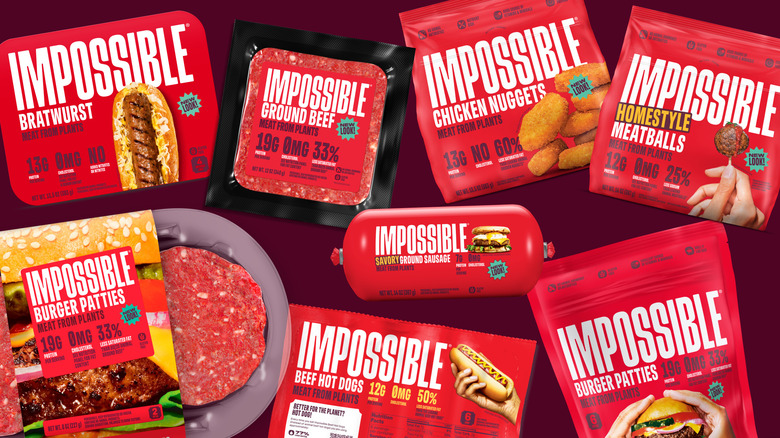What Company Owns Impossible Foods?
Impossible Foods was founded in 2011 and, since then, has become the leading producer of plant-based meats. Its flagship plant-based burger debuted in 2016, the first in a line of alternative meats made from plants — which, along with the patties, now includes ground beef, meatballs, hot dogs, sausages, chicken, and pork — all made without animals.
The brand's founder, Patrick O. Brown – formerly a professor of biochemistry at Stanford — is credited with developing a protein molecule called heme into what became the basis for the brand's impossibly realistic faux meat. Heme is present in the hemoglobin of red blood cells and found in all living things ... including plants. Brown's research led to the discovery that heme is largely responsible for the appetizing taste and smell of cooked meat. The utilization of plant derived heme is what gives Impossible Foods products their incredibly meat-like characteristics.
Having raised more than $2 billion in funding, Impossible Foods remains privately held, for now. In essence, the company is owned by itself, or rather, by its founders and investors. Major funding partners include Mirae Asset Global Investments, Bill Gates, Google Ventures, and Coatue. Impossible's president and CEO, Peter McGuinness, joined the company in 2022, having previously held the position of president, COO, and Chief Marketing and Brand Officer at Chobani. In an April 2024 exclusive, Reuters reported that per McGuinness, Impossible Foods was considering an initial public offering (IPO) sometime in the next few years, if not an outright sale to another company.
Impossible Foods rebrands to reach more meat lovers
In March 2024, Impossible Foods undertook a total rebrand. Most notably, its packaging was switched to bold red in a move targeting omnivores. A new commercial aligned with the rebrand features a campaign that embraces grilling season activities like backyard barbecues and hot dog eating contests, all with the twist that plants are now a type of 'meat.'
Relatedly, the first item to debut the new look is the brand's latest product, hot dogs. The wieners are meant to be every bit as "meaty, smoky, juicy," and satisfying as traditional hot dogs made from cow, but with 12 grams of protein (the average beef hot dog has seven grams), half the amount of saturated fat, and with far less of an environmental impact (per Impossible Foods). Hot on its heels, and as a further example of the demand for plant-based alternatives, Oscar Mayer also announced its first meatless hot dogs.
Impossible's in-your-face red packaging is designed to stand out, but also to fit right in with other meats at the grocery store. The brand is trying to position its plant-based meat as something on par with what meat-eaters and flexitarians already enjoy — just as at home at tailgate parties and baseball games as regular burgers and dogs. Its advertising isn't so much aimed at vegetarians happy to turn a can of lentil soup into a veggie burger, but it's aiming to convince meat lovers that Impossible really is meat, only better.


